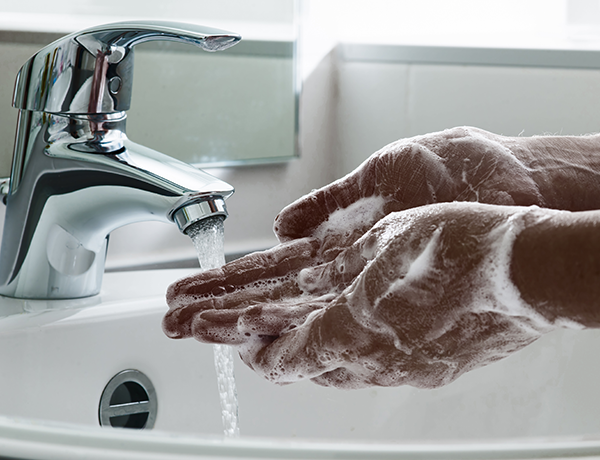National Hand Washing Awareness Week
 Disease prevention takes collaborative effort. If you avoid getting sick, you can help avoid getting others sick, and vice versa. As peak flu and cold season closes in, protect yourself and those around you by honoring National Hand Washing Awareness Week this December 7 – 12.
Disease prevention takes collaborative effort. If you avoid getting sick, you can help avoid getting others sick, and vice versa. As peak flu and cold season closes in, protect yourself and those around you by honoring National Hand Washing Awareness Week this December 7 – 12.
The Centers for Disease Control and Prevention (CDC) call hand washing a ‘do-it-yourself vaccine.’ Read on to learn more about this irreplaceable task, and resolve to make it a cornerstone of health — not only yours, but the health of those around you.
Who Does Hand Washing Protect?
- Yourself: Having dirty hands means subjecting yourself to more contact with germs, and thus more chances for something to get past your immune system and make you sick. Whether you’re preparing a meal, caring for a sick family member, or just opening a door, your hands are picking up invisible, unwanted cargo.
- Your loved ones: Germ transfer goes both ways. Touching people and objects is how you pick up germs, but if your hands weren’t clean to begin with, it also leaves some of your germs behind to potentially infect someone else.
- People with weakened immunity: Although you may be healthy enough to fend off a few germs, others around you may not be in the same boat. People coping with chronic illnesses, such as chronic obstructive pulmonary disease (COPD), may be extra vulnerable to sickness. What’s more, if they do catch something, even a small illness (like a common cold) could take a bigger toll on their health.
How Can I Keep My Hands Clean?
Frequent hand washing is always a good idea, but you can also be vigilant about reducing germ exposure as well. A key example is coughing and sneezing — it’s important to cover these germ-spreading symptoms, but you can keep your hands out of it; use a tissue or your sleeve instead. Another clean rule: hands off of your eyes, nose, and mouth. These features, known as ‘mucus membranes,’ are like express lanes for germs to get into (and out of) your body.
If you do not have visibly dirty or greasy hands, you can clean them between washings with alcohol-based hand sanitizer, which can quickly reduce the number of germs present (although it will not eliminate all types of germs). Choose a product that contains 60% – 90% ethyl alcohol or isopropyl alcohol. To sanitize your hands, apply a dime-sized amount to your palm, then rub vigorously, covering all surfaces of hands and fingers, until they are dry.
When Should I Wash My Hands?
There are still many circumstances in which there is no substitute for washing your hands. Any time your hands are visibly dirty, they should be washed with soap and water.
In addition, always wash hands before:
- Preparing, touching, or eating food
- Tending to a sick person, or treating a cut or wound
And always wash hands after:
- Preparing, touching, or eating food
- Tending to a sick person, or treating a cut or wound
- Contact with blood, body fluids, or contaminated surfaces
- Using the bathroom
- Touching animals or their waste
- Touching soiled linens or garbage
- Changing diapers
- Removing protective gloves
- Coughing, sneezing, or blowing your nose
Am I Washing My Hands Well Enough?
The CDC has clear instructions for proper hand washing. First, wet your hands with warm running water. Apply soap (liquid soap is best) and lather for at least 20 seconds, washing all surfaces (including wrists, palms, back of hands, between fingers, and under nails). Rinse off the soap and dry your hands with a clean towel; if one is not available, air-dry your hands.
No matter what your health challenge, Residential Home Health offers a range of services to help you work toward your health goals safely at home. Call (888)930-WELL (9355) to discuss your specific situation with a Home Care Specialist today, or click the image below to take our 60-second, 15-question Home Care Assessment.
{{cta(‘3073a01b-4a0b-41c6-91c0-460ecd8e3277’)}}

